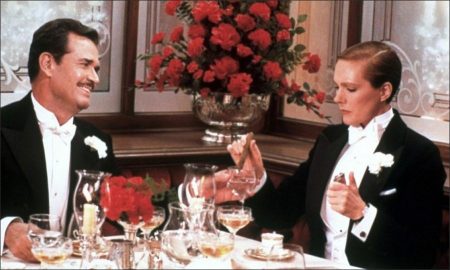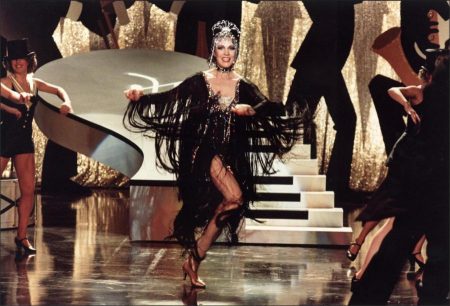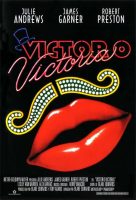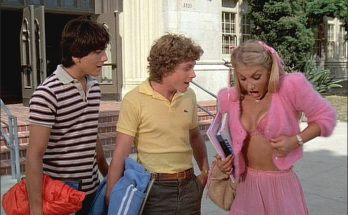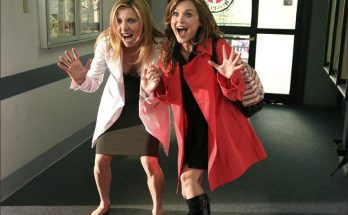Taglines: The disguise surprise comedy of the year!
Victor Victoria movie storyline. In 1934 Paris, trained coloratura soprano Victoria Grant, a native Brit, can’t get a job as a singer and is having trouble making ends meet. She doesn’t even have enough money for the basics of food and shelter. Gay cabaret singer Carole ‘Toddy’ Todd may befall the same fate as Victoria as he was just fired from his singing gig at a second rate club named Chez Lui.
To solve both their problems, Toddy comes up with what he considers an inspired idea: with Toddy as her manager, Victoria, pretending to be a man, get a job singing as a female impersonator. If they pull this scheme off, Toddy vows Victoria, as her male alter ego, will be the toast of Paris and as such be extremely wealthy. That alter ego they decide is Polish Count Victor Grazinski, Toddy’s ex-lover who was disowned by his family when they found out he was gay. The Count auditions for the city’s leading agent, Andre Cassell, who, impressed, gets him a gig performing in the city’s best nightclub.
Victor/Victoria is a 1982 British-American musical comedy film released by Metro-Goldwyn-Mayer and starring Julie Andrews, James Garner, Robert Preston, Lesley Ann Warren, Alex Karras, and John Rhys-Davies. The film was produced by Tony Adams, directed by Blake Edwards, and scored by Henry Mancini, with lyrics by Leslie Bricusse. It was adapted in 1995 as a Broadway musical. The film was nominated for seven Academy Awards and won the Academy Award for Original Music Score. It is a remake of the 1933 German film Viktor und Viktoria.
About the Story
Set in 1934 Paris, the film opens with Richard di Nardo, a young hustler, emerging from the bed of gay middle-aged Carroll Todd (Robert Preston), aka Toddy; Richard dresses, takes money from Toddy’s wallet and leaves Toddy’s apartment. Going about his day, Toddy, a performer at Chez Lui in Paris, sees Labisse, the club owner, auditioning a frail, impoverished soprano, Victoria Grant (Julie Andrews).
After the audition, Labisse drily writes her off, and she responds by sustaining a pitch to shatter his wine glass using resonant frequency. That night, Richard comes to Chez Lui as part of a straight foursome and Toddy incites a brawl by insulting Richard and the women in his group. Labisse fires Toddy and bans him from the club. Walking home, he spots Victoria dining at a restaurant, and she invites him to join her. As neither of them can pay for the meal, she dumps a cockroach in her salad to avoid paying their check, but it escapes and the whole place breaks out in havoc.
The duo run out through the rain to Toddy’s, and he invites her to stay when she finds that the rain has shrunk her cheap clothes. The next morning Richard shows up to collect his things. Victoria, who is wearing his clothes, hides in Toddy’s closet. When she thinks that Richard might harm Toddy, she ambushes Richard and literally kicks him out. Witnessing this, Toddy is struck with the inspiration of passing Victoria off as a man (the illusion convinced Richard who stumbles downstairs to his friends waiting in the car claiming a strange man wearing his clothes hit him) and presenting her to Andre Cassell (John Rhys-Davies), the most successful agent in Paris, as a female impersonator.
Cassell accepts her as Count Victor Grazinski, a gay Polish female impersonator and Toddy’s new boyfriend. Cassell gets her a nightclub show and invites a collection of club owners to the opening. Among the guests is King Marchand (James Garner), an owner of multiple clubs in Chicago, who is in league with the mob. King attends with his ditzy moll Norma Cassidy (Lesley Ann Warren) and burly bodyguard Bernstein (Alex Karras), aka Squash. Victor is a hit, and King is smitten, but devastated and incredulous when she is “revealed” as a man at the end of her act. King is convinced that “Victor” is not a man.
Victor Victoria (1982)
Directed by: Blake Edwards
Starring: Julie Andrews, James Garner, Robert Preston, Lesley Ann Warren, Alex Karras, John Rhys-Davies, Graham Stark, Maria Charles
Screenplay by: Blake Edwards
Production Design by: Rodger Maus
Cinematography by: Dick Bush
Film Editing by: Ralph E. Winters
Costume Design by: Patricia Norris
Set Decoration by: Harry Cordwell
Art Direction by: Tim Hutchinson, William Craig Smith
Music by: Henry Mancini
Distributed by: Metro Goldwyn Mayer, United Artists
Release Date: March 16, 1982
Views: 211
